Healthy Diet & Digestion
The following Tapas practices build the foundation of a healthy diet and strong digestion.
# Go Veg
1. Determine a specific period of time to go vegetarian or totally vegan (3 days, 1 week, etc.).
Traditional Yogic Diet is vegetarian due to the core non-violence principle: Ahimsa.
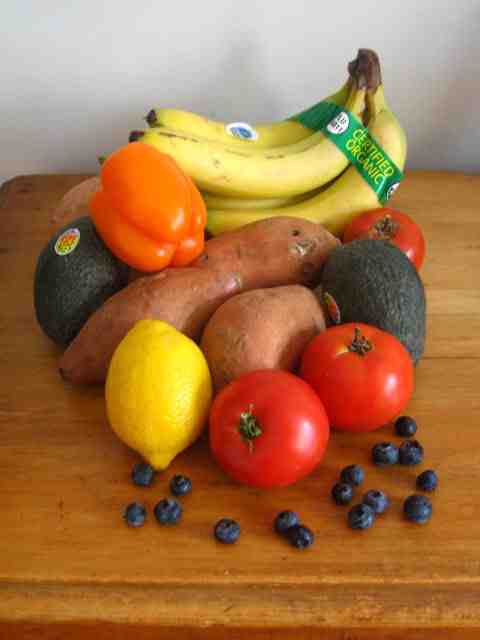
Non-violence is in our food choices and how we eat - supporting local farmers, eating in moderation and with gratitude, and chewing the food well.
Turning vegetarian is healthy for the planet, too, as animal farms are a big burden for the Earth and its water and soil health.
It's easiest to go veg in the spring and summer when fresh vegetables and fruits are in abundance.
For Yogic Diet and Ahimsa, read more here.
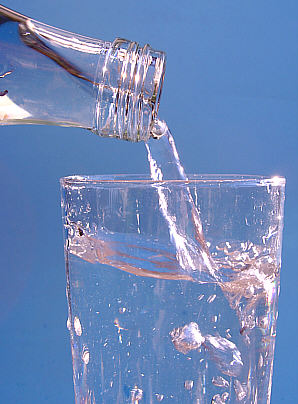
# Drink Water Upon Waking
One of the best habits to develop. Water is better than coffee in the morning.
Our body is considerably dehydrated when we wake up. Every cycle of inhale-exhale dries our lungs and we exhale lots of water overnight.
Every organ and tissue requires water for proper function. Water will lubricate, re-fuel, and re-energize:
- Brain, Nervous System, Digestive Organs, All Muscles and Joints, Skin, and pretty much everything else.
1. Drink/sip slowly at least two full glasses before breakfast. Take a half hour to do it. Squeeze fresh lemon juice, or add apple cider vinegar.
2. Do not substitute water with tea, juice, coco water, or any other drink.
Apple Cider Vinegar also works well to stimulate strong digestion at any other time of day.
You can find it at most health food stores. The raw kind has strands of pro-biotic culture, often called 'the Mother', which supports healthy intestinal flora.

Michael Pollen puts it plainly in his book "In Defense of Food":
"Eat food. Not too much. Mostly plants."
# Avoid Processed Foods
1. Start with minimizing your processed food purchases at the grocery store.
2. Get yourself into a habit of remembering to read the labels, and go for all-natural, fresh, organic foods as often as possible.
3. Limit the following:
- Wheat/gluten/yeast (breads, baked goods, pizza and pasta)
- Dairy
- Sugar/artificial sweeteners
- Alcohol
- Coffee
- Soy foods
- Salt
4. Eat the way humans are meant to/evolved to eat - the way our Paleo ancestors ate. Their diets focused on eating whole, wild, organic, nutrient dense, unprocessed non-inflammatory foods.
Anything that has a label listing ingredients is a processed food.
HOW TO FILL YOUR PLATE:
- Non-Starchy Veggies (1/2 of your plate) • Kale, chard, mustard greens, collards, spinach, broccoli, asparagus
- Lean Proteins (¼ of your plate) • Wild fish, organic chicken, turkey, green beans, green peas, sprouts, organic tofu, sprouted beans, lentils, quinoa, spirulina
- Healthy Carbs (1/8 of your plate) • Brown rice, wild rice, buckwheat, quinoa, beets, sweet potatoes, millet, cruciferous veggies, berries
- Healthy Fats (1/8 of your plate) • Seeds and nuts, nut butters, nut oils, olives and olive oil, avocado, flax seed, coconut oil
# Eat smaller meals
Smaller meals are easier to digest.
History shows repeatedly that people who eat fewer calories and little in general, have fewer diseases and live longest.
# Eat simpler meals
Meals with fewer than three types of food (i.e. veggies, fruits, meat, fish, eggs, dairy, beans, grains, nuts and seeds, etc.) are easier to digest.
With fewer types of food in the stomach, the foods do not 'compete' with each other and all foods are digested well.
Each kind of food requires different digestive juices and enzymes. When too many types of foods are eaten together, digestion is compromised because different enzymes may interfere with each other's digestive functions.
# Don't snack between meals
Eat four or five small meals if you have to (when in serious athletic training), but don't graze all day.
Grazing weakens the digestive system, exhausts enzyme reserves, and does not allow your digestive organs to rest.
# Fast at least 12 hours after dinner & before breakfast
Support the body's natural detox process by giving it rest from digestion every night.

# Chew all food really well
Chew until you can 'drink' each bite: 20 to 50 times!
Good digestion begins in the mouth. Especially for complex carbohydrates, which digest only in the mouth and the small intestine.
The stomach acids DO NOT break down carbohydrates!
If you don't chew the carbs (greens, salads, grains, and beans) you probably will not digest them. So you may experience gas, bloating, and slight pain in the belly.
In fact, those symptoms are very common due to the way we eat: little chewing, on the go, multi-tasking.
Chewing also gives notice to the body that food is coming down, so the stomach, liver, gallbladder, pancreas, etc., all get ready, and bloating is avoided.
Carnivorous animals don't have to chew. In fact, they can't, as their jaws don't move side to side. They rip the food instead. They eat mostly fats and protein, which get digested in the stomach just fine.
Herbivores (like chimps, gorillas, horses, cows, giraffes, elephants, AND humans) have to chew.
All herbivorous animals chew. Sometimes for hours. Have you noticed that? Except for us, humans. Somehow, we have ignored to observe nature and our obvious biology.
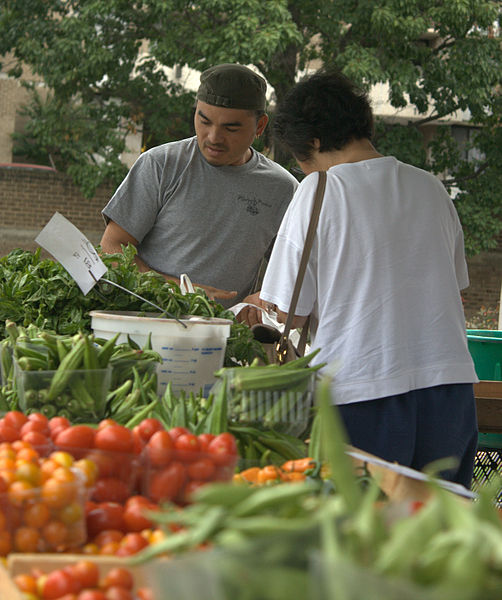
# Eat Local
Challenge yourself to a specific time period (1 day per week, 3 days per week, etc.)
Locally-grown foods are usually more fresh, which means they contain higher vitamin and mineral content.
Every day after being picked, fruits and vegetables lose their nutrient content by 20%!
In addition, you'd support the local farmers, and reduce our impact on the environment as the food doesn't have to be shipped and trucked thousands of miles.
# Lighten Up On Proteins and Fats
Our body doesn’t need too much protein or fat. We can use only a certain amount of protein. If you consume more than your body needs, it will convert the extra protein into fat. (Fat is the most efficient way for our body to store any excess).
Cultures that live the longest and healthiest lives, eat the lowest amounts of protein.
In fact, our body doesn't need protein per se. It needs amino acids, the building blocks of protein.
Where do we find amino acids?
Everywhere. Literally. Most foods contain amino acids, with plants as the richest sources.
Some of the strongest animals like the bull, the elephant, and the gorilla are 99% vegan.
For healthy protein, eat foods rich in amino acids: fresh non-starchy vegetables, dark leafy greens, sprouts, soaked nuts and seeds, and micro-algae (like spirulina and chlorella - a complete protein food with all essential amino acids).
# Lighten Up on Salt
Salt is a vital nutrient, yet in large doses it's extremely harmful. It hardens our arteries and tissues. If your joints feel stiff, or ache, sodium buildup could be the cause.
The only time it's useful, and in fact necessary, to consume higher quantities of salt is during intense aerobic exercise, when perspiration is profuse over a long period of time, like in running a marathon. In such cases, sodium is critical.
Otherwise, salt should be minimized for good health.
# Get a daily surplus of antioxidants
Antioxidants, Free Radicals, and Oxidative Stress
Antioxidants are vitamins, minerals, enzymes, or plant-derived nutrients called phytonutrients, found in food. They do what their name implies: ANTI-OXIDATION...
# Get a daily surplus of enzymes
Without enzymes, no digestion can take place.
Enzymes are special proteins necessary for every chemical reaction in the body including digestion, breathing, thinking, sleeping, fighting disease, and immune defense.
Only raw foods contain enzymes and life-force, and they are more important to our health than taking vitamins, minerals, and amino acids. It’s the life-force and enzymes that keep us vibrantly alive and internally clean.
Enzymes are destroyed by cooking and must be constantly replaced. Cooked foods draw away from our enzyme reserves.
Add plenty of fresh fruits and vegetables, dark leafy greens, sprouted grains and seeds, seaweed and micro-algae to your diet to continually replenish your enzyme reserves.
To learn more, please go to Enzymes for Healthy Digestion.
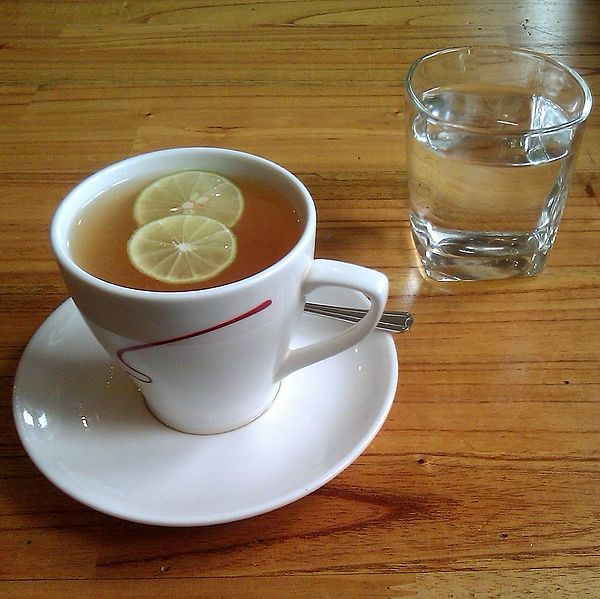
# Sip hot tea or hot water with lemon
If you have eaten too much rich and fatty food, get some hot water with lemon as an after-meal drink. You can also try seltzer with lemon, or peppermint tea.
Lemon helps cut the grease, and according to Chinese medicine, the sour taste stimulates the liver.
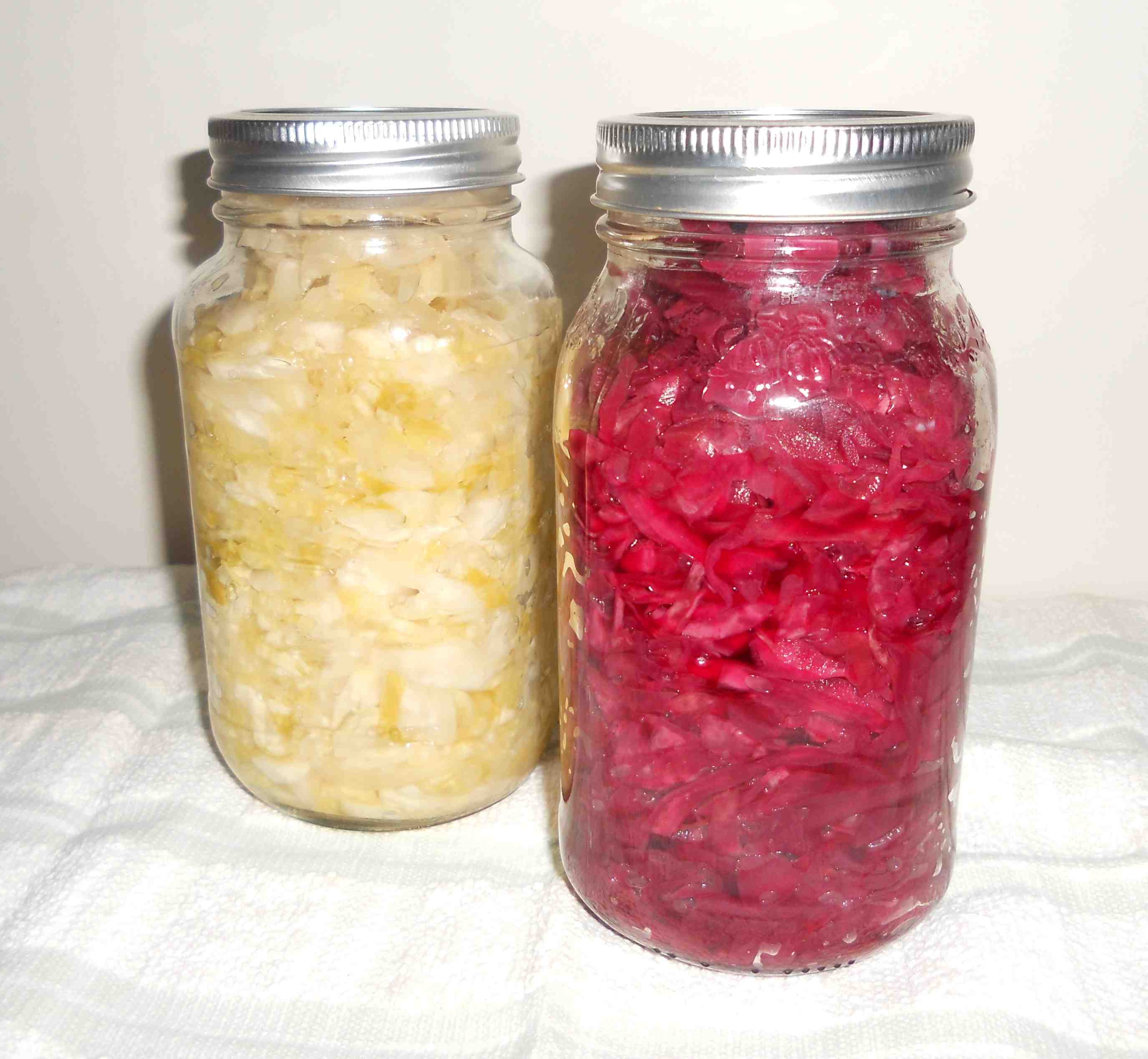
# Eat pro-biotic foods
Remember to include some natural probiotics in your diet every day. They maintain healthy bacteria in the large intestine.
Healthy intestinal flora aids digestion.
In addition, it's able to 'produce' certain enzymes and amino acids, otherwise required to obtain from food.
Pro-biotic foods: Kombucha (fermented tea), raw Apple Cider Vinegar, raw Sauerkraut, Kim-Chi (Asian sauerkraut), yogurt (soy or dairy), cottage cheese, miso, and tempeh (fermented soy beans).
There are a few other cultural foods obtained through fermentation.
Old cultures have always had one or two pro-biotic foods consumed on a regular basis. They must have known better.
|
|